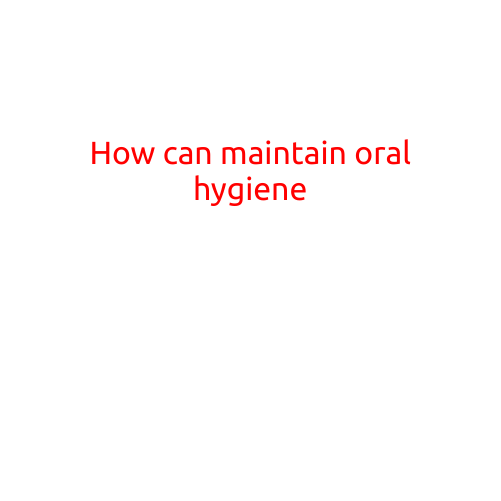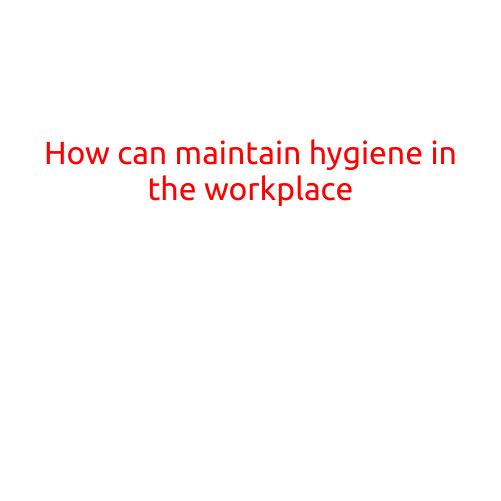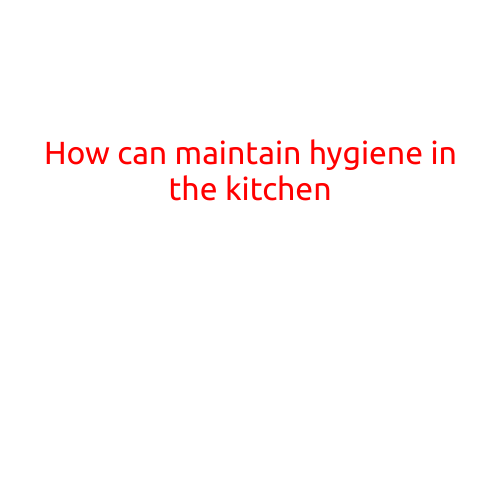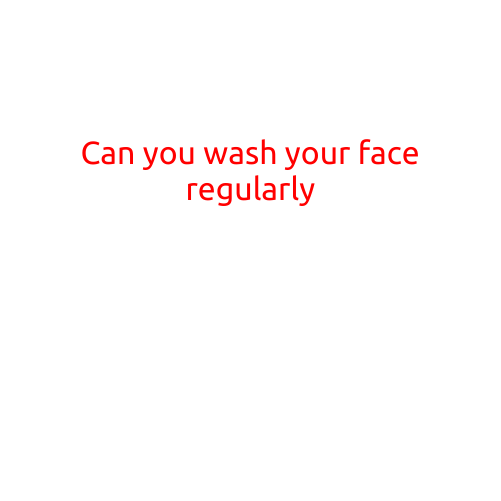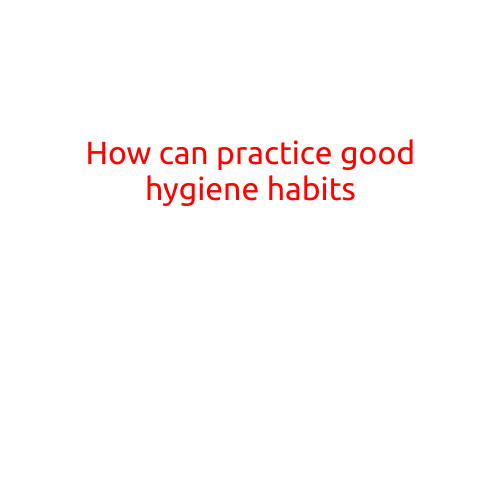
How to Practice Good Hygiene Habits
Maintaining good hygiene is essential for our overall health and wellbeing. Practicing good hygiene habits can help prevent the spread of illnesses, reduce the risk of infections, and even boost our confidence and self-esteem. In this article, we will explore the importance of good hygiene and provide tips on how to incorporate good hygiene practices into your daily routine.
Why is Good Hygiene Important?
Good hygiene is crucial for preventing the spread of illnesses and infections. When we don’t practice good hygiene, we put ourselves and others at risk of getting sick. This is especially important for people who have weakened immune systems, such as the elderly, young children, and those with chronic illnesses. Good hygiene also helps to prevent the transmission of diseases, such as the flu, common colds, and skin infections.
Good Hygiene Habits to Practice
- Wash Your Hands Regularly
Washing your hands with soap and water is one of the most effective ways to prevent the spread of illnesses. Make sure to wash your hands:
- After using the bathroom
- Before eating
- After blowing your nose, coughing or sneezing
- After touching animals or their waste
- After touching garbage or anything that may be contaminated with germs
Use warm water and soap, rub your hands together to create a lather, and scrub all surfaces of your hands, including your wrists, between your fingers, and under your nails.
- Use Hand Sanitizer
When soap and water are not available, use hand sanitizer. Apply a sufficient amount to the palm of your hand, rub your hands together, and make sure to cover all surfaces of your hands.
- Shower or Bathe Regularly
Showers or baths help to remove dirt, sweat, and bacteria from your skin, reducing the risk of infections. Aim to shower or bathe at least once a day, or more often if you work outdoors or engage in physical activity.
- Brush and Floss Your Teeth
Good oral hygiene is essential for preventing tooth decay, gum disease, and bad breath. Brush your teeth at least twice a day with fluoride toothpaste and floss once a day to remove food particles and plaque.
- Wear Clean and Change Your Clothes Regularly
Wearing clean clothes and changing them regularly can help prevent the spread of infection. Wear clothes made from breathable fabrics, such as cotton, and avoid wearing the same outfit multiple days in a row.
- Cover Your Mouth and Nose
When you cough or sneeze, cover your mouth and nose with a tissue or your elbow. This helps to prevent the spread of illnesses by containing droplets that may contain germs.
- Clean and Disinfect Surfaces
Frequently clean and disinfect surfaces and objects that are easily contaminated with germs, such as:
- Door handles
- Light switches
- Remote controls
- Kitchen counters
- Bathroom sinks
Use a disinfectant spray or wipe, and make sure to follow the instructions on the label.
Additional Tips
- Avoid touching your face, especially your eyes, nose, and mouth, as this can help spread germs.
- Eat a balanced diet that includes foods rich in antioxidants, such as fruits, vegetables, and nuts.
- Get enough sleep and exercise regularly to help boost your immune system.
- Avoid sharing personal items, such as towels, razors, and lip balms.
Conclusion
Practicing good hygiene habits is essential for maintaining a healthy and hygienic lifestyle. By following these simple tips, you can reduce your risk of getting sick, prevent the spread of illnesses, and improve your overall wellbeing. Remember, good hygiene is a habit that can be developed with consistent effort, so start practicing good hygiene habits today!

